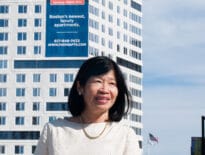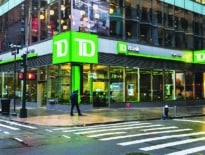
Malia Lazu
“Banking While Black” is trend we seem to hear more about as conversations of equity grow. The stats show the lack of relationships banks have with Black people. Almost half of Black families are underbanked compared to 19 percent of white families, Black business lacked access to PPP loans and continue to get declined for loans at higher rates up to 80 percent by some studies.
In the latest Banking While Black news, “Black Panther” director Ryan Coogler was arrested in a Bank of America branch in Atlanta trying to withdraw $12,000. Coogler wrote a note on a deposit slip asking the teller to count the money in another room as he was “trying to be discreet.” An alert went off for the teller as she attempted the transaction and the teller and her manager thought Coogler was trying to rob or scam the bank, and called the police. The police detained and handcuffed Coogler until the mistake was realized.
There is so much to unpack in this incident. But let me begin here. Ryan Coogler is an example of Black exceptionalism. A record-breaking, award-winning film director. Which probably helped him get out of handcuffs once they verified who he was. But what if he was a no-name Black guy who was just hoping to be discreet with his money? Would police have leaned into this robbery story and charged him to let the courts work it out? Would he have had to prove he wasn’t robbing the bank and he just didn’t want anyone to know he was about to walk out with $12,000? If Ryan Coogler was a random “Ryan” this action could have ruined this man’s life.
History Has a Long Impact
Bank of America has made some bold pledges around ending racism especially after they had to pay over $300 million in fines for discrimination in 2011. But the intention has not impacted the culture of their branches. Some in the news have made it a point to say that the teller was Black. They don’t mention the name of her manager who insisted that she call the police, so I assume their race is not helpful to the situation. This mention adds insult to injury as it attempts to temper the story by removing the element of race. It’s a white privilege way to think about it. The color of the teller doesn’t matter any more than the color of the cop. It’s the color of the victim that matters.
Beyond the danger that Black people can so easily find themselves in when police are called, banks need to stop and realize their misguided assumptions on who is a “worthy customer” within their 21st century customer base. We work with our banking clients on the idea of “dignified banking for all.” Whether someone is cashing a check or closing a mortgage, they should be seen as valued customers. Dignified banking stands on three legs.
Recognize the history of banks taking advantage of Black people. Banking While Black is actually getting better. As we have historically learned, banks have redlined Black communities, created predatory practices that lead to stealing Black wealth for hundreds of years. If staff do not understand Black customers walking into a bank with that truthful narrative, they will not understand why Black people are so quick to assume the bank is trying to take advantage of them.
Question Who’s a ‘Good Customer’
Doing a cultural customer service audit is an important first step. Take stock of the policies and procedures tellers have. Do they reinforce opportunities for your tellers to build relationships with customers? Or are they completely transactional while ignoring the realities of customers’ lives. Wanting to be discreet about $12,000 should not have raised suspicion. It actually sounds like a reasonable request from a customer. Processes become culture, so training and incentivizing culture becomes a critical next step.
All customer service training must have an anchor in cultural and behavioral training. We work with our clients to help develop a culture that takes into account how tellers and other front-line workers view “good and bad customers.” When I hosted a focus group with people who use check cashing and we asked them why they like check cashing, the responses were a little surprising. A majority of people said they feel belittled at banks and hidden fees make them hard to trust. They preferred to pay exorbitant fees up front to avoid the feelings of judgment and surprise fees. Centering training in how others perceive banks is critically important to be able to provide equitable customer service.
Bank CEOs understand the role branches play. Tellers are gatekeepers to customers’ money. The control they have over these dollars is so much greater than their pay scale would suggest. Banks need to take that responsibility seriously, which includes providing people dignified access to their money. Bank of America may want to take a Starbucks moment and remind its branches the new brand is trying to build one dedicated to equity.
Malia Lazu is a lecturer in the Technological Innovation, Entrepreneurship and Strategic Management Group at the MIT Sloan School of Management, CEO of The Lazu Group and former Eastern Massachusetts regional president and chief experience and culture officer at Berkshire Bank.






